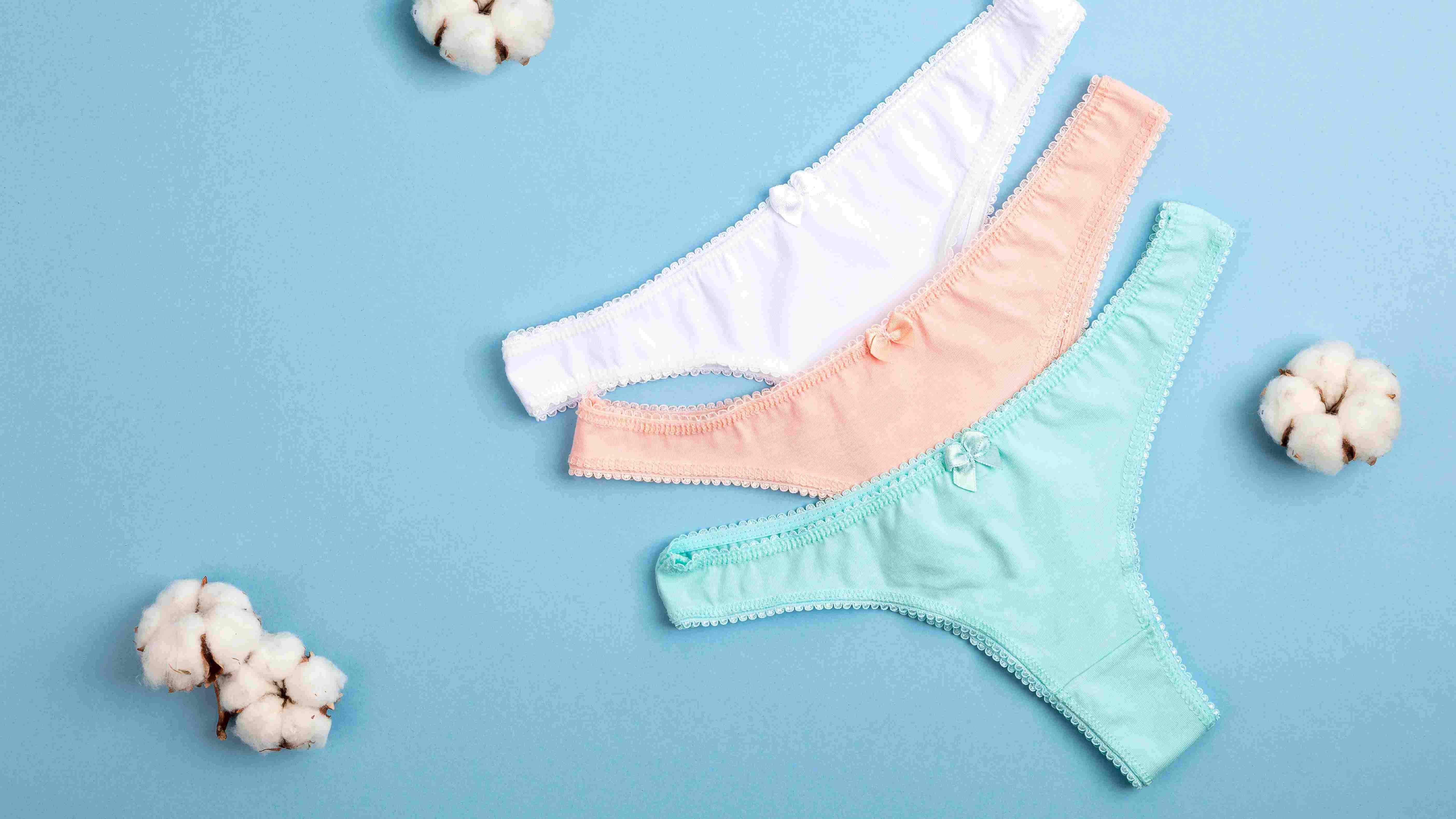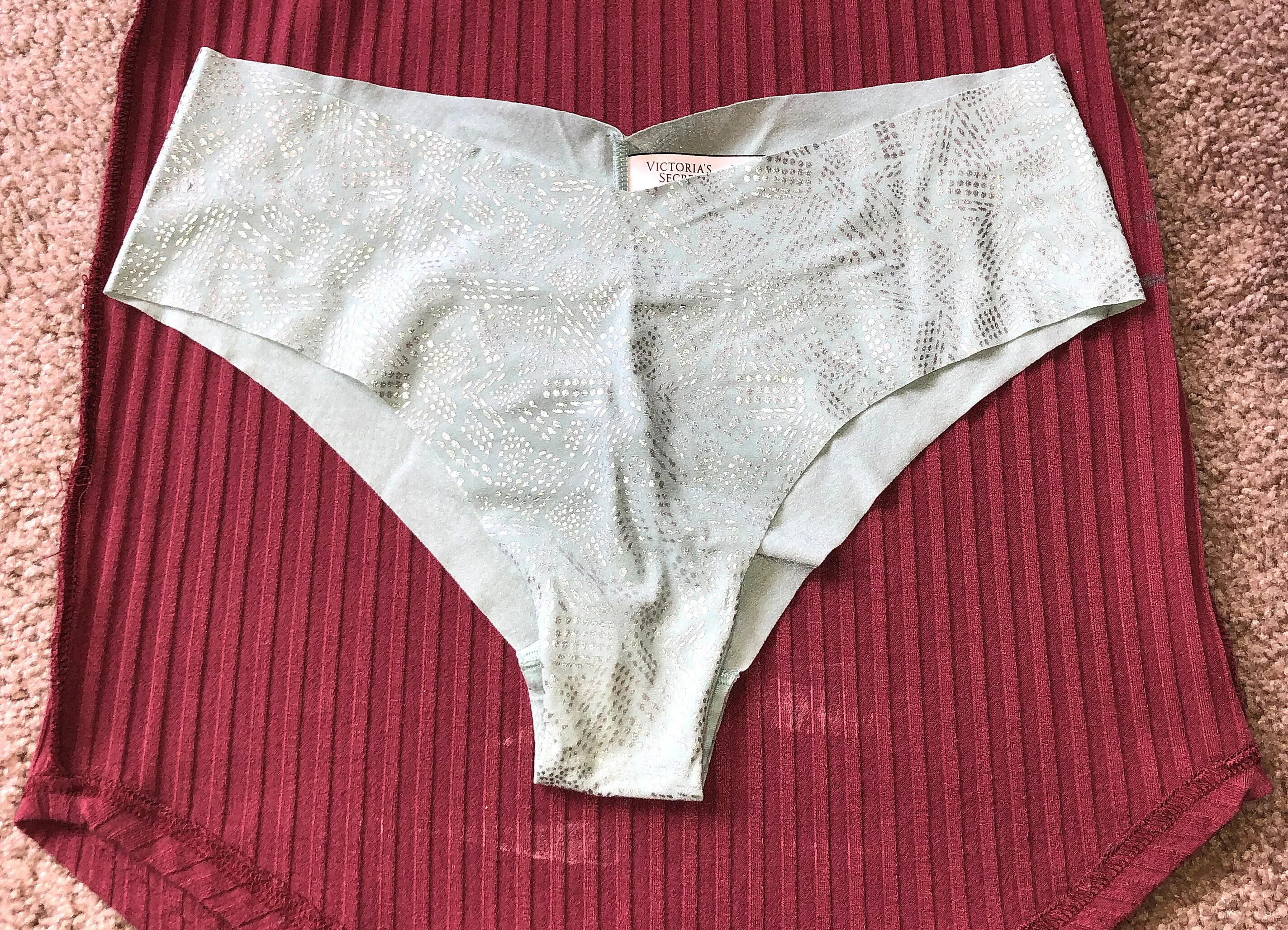

FAQs
What Can Wearing Tight Underwear Cause
Published: July 31, 2023
Discover the potential effects of wearing tight underwear on your health and well-being. Get answers to your general questions and make informed choices.
(Many of the links in this article redirect to a specific reviewed product. Your purchase of these products through affiliate links helps to generate commission for Under-tec.com, at no extra cost. Learn more)
Table of Contents
Introduction
Wearing tight underwear has become a common fashion choice for many individuals, both men and women alike. While it may seem like a harmless fashion trend, tight underwear can actually have negative effects on our health and well-being. In this article, we will explore the various consequences of wearing tight underwear, highlighting the potential impact it can have on fertility, urinary tract health, and overall comfort.
It is important to note that tight underwear refers to undergarments that are made from materials with limited stretch, such as nylon or polyester, as well as underwear that is simply too small for the wearer’s body. These types of underwear do not allow for proper ventilation and can constrict the genitals or create friction against the skin.
While tight underwear may offer a sleek and fitted look, it is crucial to understand the potential risks that come with wearing them. By being aware of the negative effects, individuals can make more informed choices about their underwear preferences and prioritize their health and well-being.
Overview of Tight Underwear
Tight underwear, as the name suggests, refers to undergarments that fit snugly against the body, often made from materials that have limited stretch. This can include briefs, boxers, panties, or any other type of undergarment that is too small or made from non-breathable fabrics.
One of the primary reasons people choose to wear tight underwear is for aesthetic purposes, as they provide a more fitted and streamlined look under clothing. However, it is important to understand that there can be potential health consequences associated with this fashion choice.
When wearing tight underwear, the crotch area is often subjected to increased levels of heat and moisture due to the lack of proper ventilation. This environment provides an ideal breeding ground for bacteria and yeast, which can lead to various health issues.
In addition to this, tight underwear can restrict blood flow to the genital area, which can have consequences for both males and females. For men, this can impact fertility as it can raise the temperature of the testicles, affecting sperm production and quality. Women may also experience reduced blood flow to the vaginal area, potentially leading to discomfort and irritation.
It is worth noting that while the negative effects of tight underwear on fertility and overall health may not be immediately noticeable, long-term use can increase the risk of developing more serious issues. As such, it is essential to understand and consider the potential consequences before regularly choosing to wear tight-fitting undergarments.
Negative Effects on Male Fertility
One of the most significant concerns associated with wearing tight underwear is its potential negative impact on male fertility. The testicles are naturally designed to be slightly cooler than the rest of the body to ensure proper sperm production and quality. Tight underwear can significantly raise the temperature in the scrotum, disrupting this delicate balance and potentially leading to fertility issues.
When the testicles are exposed to prolonged heat, sperm production can be affected, resulting in lower sperm counts, reduced sperm motility, and abnormal sperm shape. This can significantly impair a man’s ability to father a child and can be a source of frustration and stress for couples trying to conceive.
Furthermore, wearing tight underwear can also lead to increased scrotal temperature during sleep, as body heat is trapped in the restricted area. This extends the duration of heat exposure and further compromises sperm health.
In addition to increased temperature, tight underwear can also impact testicular function by causing pressure and constriction. This can lead to decreased blood circulation to the testicles, affecting the delivery of essential nutrients and oxygen. Prolonged restriction of blood flow to the testicles can impair sperm production and contribute to fertility problems.
It is important to note that the effects of tight underwear on male fertility can vary from person to person. Some men may be more sensitive to the increased scrotal temperature, while others may not experience significant changes. However, for individuals concerned about their fertility or those actively trying to conceive, it is advisable to opt for looser, more breathable underwear options that promote better airflow and maintain a comfortable temperature in the genital area.
By prioritizing the health and function of the testicles, men can mitigate the potential negative effects of tight underwear and safeguard their fertility for the future.
Increased Risk of Urinary Tract Infections
Wearing tight underwear can elevate the risk of developing urinary tract infections (UTIs), particularly in women. The close-fitting nature of these undergarments can create a warm and moist environment in the genital area, promoting the growth of bacteria.
UTIs occur when bacteria, typically from the gastrointestinal tract, enter the urethra and travel up into the bladder. This can lead to symptoms such as frequent urination, a burning sensation during urination, and a strong urge to urinate.
Tight underwear can exacerbate this risk by trapping moisture and preventing proper airflow, making it easier for bacteria to thrive and multiply. The lack of ventilation in the genital area provides an ideal environment for bacteria to grow and ascend into the urinary tract.
Women, in particular, are more susceptible to UTIs due to their shorter urethra, which allows bacteria to reach the bladder more easily. Wearing tight-fitting underwear can further increase this vulnerability.
In addition to increasing the chances of developing UTIs, tight underwear can also contribute to recurrent infections. When bacteria are trapped and allowed to multiply, they can cause repeated episodes of infection, leading to a cycle of discomfort and frustration.
To reduce the risk of UTIs, it is important to choose underwear that promotes proper airflow and ventilation. Opting for looser, more breathable fabrics such as cotton can help prevent the build-up of moisture and create a less favorable environment for bacteria.
Furthermore, maintaining good hygiene practices is essential for preventing UTIs. Always ensure to wipe from front to back after urinating to avoid introducing bacteria from the anus to the urethra.
By being mindful of the potential increased risk of UTIs associated with tight underwear and taking proactive measures to promote urinary tract health, individuals can better protect themselves from the discomfort and inconvenience of these infections.
Impact on Vaginal Health
Wearing tight underwear can have several negative effects on vaginal health, primarily due to the lack of proper airflow and increased moisture in the genital area. These conditions create an ideal environment for the growth of bacteria and yeast, leading to various uncomfortable and potentially serious health issues.
One of the most common problems associated with tight underwear is the increased risk of vaginal infections, such as yeast infections. Yeast, which naturally occurs in the vagina, can overgrow when conditions are favorable, such as in a warm and moist environment. Tight underwear can trap moisture and heat, creating the perfect breeding ground for yeast to proliferate.
In addition to yeast infections, tight underwear can also contribute to bacterial vaginosis. This condition occurs when the normal balance of bacteria in the vagina is disrupted, leading to an overgrowth of harmful bacteria. The lack of ventilation and increased moisture caused by tight underwear can disrupt this delicate balance, increasing the likelihood of bacterial overgrowth.
Furthermore, tight underwear can cause irritation and inflammation in the vaginal area. The friction and pressure from the fabric can lead to discomfort, itching, and redness. The constant rubbing of the fabric against the skin can irritate the delicate tissues and disrupt the natural pH balance, making the vagina more susceptible to infections.
It is important for women to prioritize their vaginal health and choose underwear that allows for proper airflow and moisture-wicking properties. Opting for breathable fabrics like cotton can help reduce the risk of vaginal infections and discomfort.
Maintaining good hygiene practices, including regular washing with mild soap and water, can also help preserve the vaginal health and prevent the buildup of bacteria and yeast. Additionally, avoiding the use of harsh chemicals or fragrances in the genital area can help maintain the natural balance of the vagina.
By being conscious of the potential impact of tight underwear on vaginal health and taking steps to promote proper ventilation and hygiene, women can minimize the risk of infections and ensure the well-being of their intimate area.
Discomfort and Skin Irritation
Wearing tight underwear can lead to significant discomfort and skin irritation, particularly in areas where the fabric is in constant contact with the skin. The constriction and friction caused by tight undergarments can result in various skin issues, ranging from mild irritation to more severe conditions.
The close-fitting nature of tight underwear can create friction against the skin, especially in areas such as the groin and inner thighs. This friction can cause redness, chafing, and even the development of painful skin rashes. The constant rubbing of the fabric against the skin can further exacerbate these issues.
In addition to friction, tight underwear can also trap moisture, sweat, and bacteria against the skin. This can lead to the formation of skin conditions such as dermatitis or fungal infections. The warm and moist environment created by tight underwear provides an ideal breeding ground for these bacteria and fungi.
Individuals who are prone to allergies or have sensitive skin may be particularly susceptible to discomfort and irritation caused by tight undergarments. The abrasive fabric can trigger allergic reactions or exacerbate existing skin conditions such as eczema. It is important to note that these skin issues can be further aggravated when the skin is repeatedly exposed to tight underwear over an extended period.
To alleviate discomfort and minimize the risk of skin irritation, individuals should consider opting for underwear made from soft, breathable fabrics like cotton. These materials allow for better ventilation and can help reduce friction against the skin.
It is also crucial to maintain good hygiene practices to prevent the buildup of bacteria and sweat. Regularly changing into clean, dry underwear can help keep the skin fresh and minimize the chances of developing skin problems.
If skin irritation or discomfort persists despite these preventive measures, it is advisable to seek medical advice. A healthcare professional can provide an accurate diagnosis and recommend appropriate treatment to alleviate symptoms and promote skin healing.
By choosing underwear that prioritizes comfort, and taking steps to maintain good skin hygiene, individuals can minimize the risk of discomfort and skin irritations associated with tight undergarments.
Potential Link to Erectile Dysfunction
Wearing tight underwear may have a potential link to erectile dysfunction (ED), a condition characterized by the inability to achieve or maintain an erection sufficient for sexual activity. While the exact relationship between tight underwear and ED is still being studied, there is evidence to suggest that the constriction and increased temperature in the genital area can contribute to this sexual health issue.
One of the primary mechanisms through which tight underwear might affect erectile function is by raising the temperature of the testicles. The testicles are located outside the body because they require a slightly lower temperature to produce healthy sperm and maintain proper hormonal balance. Wearing tight underwear can increase the temperature in the scrotum, potentially affecting blood flow, hormone production, and overall testicular function.
The reduced blood flow to the penis caused by tight underwear can also contribute to erectile dysfunction. Adequate blood circulation is essential for achieving and maintaining an erection. When blood flow is constricted, it can impede the ability to achieve a firm and lasting erection.
In addition to physical factors, the psychological impact of wearing tight underwear can also play a role in erectile dysfunction. Discomfort and the constant awareness of the constricted garment can lead to stress, anxiety, and self-consciousness, all of which can contribute to sexual performance anxiety and difficulties getting or maintaining an erection.
It is important to note that the potential link between tight underwear and erectile dysfunction may vary from person to person. Some individuals may experience more pronounced effects, while others may not be significantly impacted. However, for those who are already predisposed to erectile problems or are experiencing difficulties, it may be worth considering looser, more breathable underwear options to alleviate any potential contributing factors.
Ultimately, maintaining good sexual health involves a multifaceted approach that includes factors such as lifestyle choices, overall physical condition, and emotional well-being. While it is unlikely that wearing tight underwear alone will cause erectile dysfunction, it is wise to consider the potential impact and make underwear choices that prioritize comfort, proper ventilation, and overall genital health.
Conclusion
Wearing tight underwear may be a popular fashion choice, but it is important to understand the potential negative effects it can have on our health and well-being. From fertility issues and increased risk of urinary tract infections to discomfort, skin irritation, and even a potential link to erectile dysfunction, there are several factors to consider when selecting underwear that prioritizes both style and health.
The close-fitting nature of tight underwear can create a warm and moist environment, which promotes the growth of bacteria and yeast. This can lead to various health issues, including vaginal infections for women and urinary tract infections for both men and women.
Tight underwear can also raise the temperature in the genital area, potentially impacting fertility by affecting sperm production and testicular function. For men and women, it can lead to discomfort, skin irritation, and recurrent rashes.
Additionally, wearing tight underwear may have a potential correlation with erectile dysfunction, as the constriction and increased temperature can impact blood flow and testosterone production. Mental factors such as stress and anxiety, resulting from discomfort, can further exacerbate the issue.
When selecting underwear, it is crucial to balance style with comfort and prioritize your health. Opt for underwear made from breathable materials like cotton, which allows for proper ventilation and moisture-wicking properties. Regularly changing into clean, dry underwear and practicing good hygiene can also help minimize the risk of infections and irritation.
Ultimately, being aware of the potential negative effects of tight underwear and taking proactive steps to mitigate them can contribute to maintaining overall genital health and well-being. By making informed decisions about our undergarments, we can prioritize our comfort, fertility, and sexual health.










